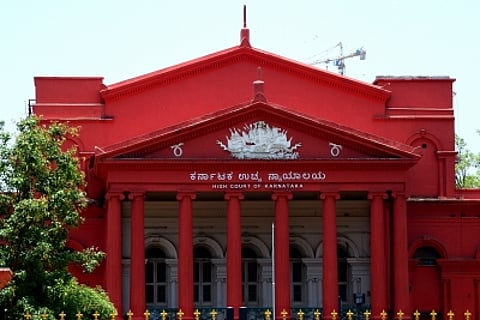

The Karnataka High Court on Thursday declined to interfere with the state government’s ongoing Social and Educational Survey but imposed strict conditions to ensure confidentiality and voluntary participation.
A division bench of Chief Justice Vibhu Bakhru and Justice CM Joshi, while hearing a batch of petitions challenging the exercise, passed an interim order saying that the survey may continue but directed the Karnataka State Backward Classes Commission to protect the information gathered, Bar and Bench reported.
“In view of the above, we do not find to interdict the ongoing survey. However, we state that data collected shall not be disclosed to any person. Commission shall ensure that data is fully protected and kept confidential,” the bench observed, according to LiveLaw.
The court further ordered that a public notification be issued clarifying that the survey is voluntary and that “no person is obligated to disclose any information.” Enumerators, the bench added, must inform participants at the outset that providing data is entirely optional.
The petitions challenged the state’s decision to conduct the survey under the supervision of the Backward Classes Commission, questioning both its legality and the potential risks to privacy.
Appearing for the Commission, Senior Advocate Ravivarma Kumar argued that the survey was necessary to capture data on whether different castes and communities were adequately represented. He maintained that there was no compulsion for citizens to participate, and enumerators had been trained to reflect this.
However, Senior Advocate Vivek Subba Reddy contended that voluntary disclosure did not address broader concerns. He argued that after the Supreme Court’s landmark KS Puttaswamy ruling on privacy, the right to privacy included the right to control the dissemination of information, LiveLaw reported.
Concerns were also raised over Aadhaar linkage. While petitioners highlighted the risk of leaks, the court clarified that survey data was not being linked to Aadhaar, though the fact of possession of an Aadhaar number would be recorded.
Senior Advocate S Sriranga added that the state was misleading the public by calling the exercise a “survey” when its handbook referred to it as a “census.”
Rejecting the demand to halt the process, the bench reiterated that confidentiality was paramount. “If a participant declines to participate, enumerators will not take any further steps to persuade or cajole participants to divulge any information,” it said, directing the Commission to file an affidavit within one working day outlining measures to safeguard the collected data.